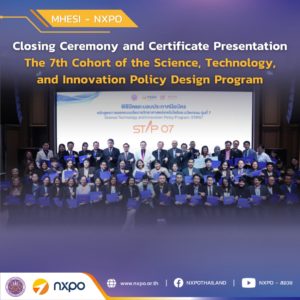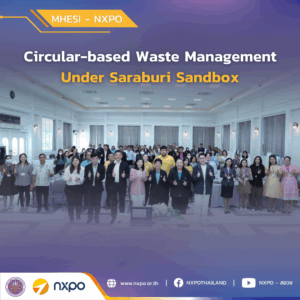
Speaking at a recent seminar on innovation law, NXPO President Dr. Kitipong Promwong revealed the following progress that NXPO has made in easing laws and regulations to foster an innovation ecosystem.
- Unlocking public research fund to support enterprises and civil society. Currently, public research fund is provided to universities and research institutes in the public domain. NXPO has proposed a modification to the regulations so that enterprises are eligible for public research fund in order to promote industry-driven research and innovation. This proposal has recently been approved by the National Higher Education, Science, Research and Innovation Policy Council (Policy Council).
- Thai Bayh-Dole Act. The Thai Bayh-Dole Act will give institutions the right to claim title to inventions made with government funding, the power to manage their IPs and the freedom to negotiate licensing terms that would best encourage the commercialization of technology. This bill is expected to boost the transfer of technology from the public sector to industry and promote technology and innovation utilization. The draft bill is currently in the legislative process.
- Easing government procurement regulations. NXPO has proposed a revision to the government procurement regulations, particularly on the items pertaining to research and development. The revised regulations will expedite the procurement of materials and services used in research activities. This proposal has recently been approved by the Policy Council.
- Holding company mechanism. This mechanism will allow any university and research institute to establish a holding company, operating as a private entity which will enable flexibility, agility and business-driven decision making, as well as facilitate spinoff companies. The mechanism is expected to promote commercialization of research and innovation in public universities and research agencies.
- Innovation sandbox. Innovation sandbox provides an environment wherein new technologies can be safely tested under the strict supervision of the regulators, without being required to abide by full regulatory requirements. It will allow cutting-edge technologies as well as a highly skilled workforce to be fully developed, while public safety and privacy can be safeguarded, and any implication can be carefully examined so that proper measures and laws can be put in place. NXPO is in the process of developing a bill to support this concept.







